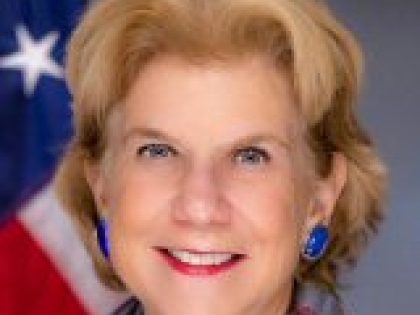
Governor Signs Bill Sponsored by Senator Shelley Mayer and Assemblywoman Carrie Woerner to Ease Transition to Zero-Emission Buses
Senator Shelley B. Mayer
December 17, 2024
(Albany, New York) - Governor Kathy Hochul signed key legislation sponsored by Senator Shelley B. Mayer and Assemblywoman Carrie Woerner to change the amortization period of electric school buses from 12 to eight years and to allow transportation aid to be paid out over a period of eight years.
Through Mayer and Woerner’s legislation, S.9292A/A.9238A, school districts will be able to bond for the purchase of electric buses or lease buses over a shorter period of time and receive state transportation aid on an accelerated timeline, easing the transition to zero-emission buses.
Beginning in 2027, school districts across New York State will be required to purchase zero-emission school buses and must fully transition their fleets by 2035. While electric school buses have a longer useful life than diesel school buses, impact of road salt and other normal wear and tear can impact the life expectancy of the school buses. Changing the amortization period from 12 years to eight years more accurately reflects the life expectancy of school buses.
Senator Shelley B. Mayer said, “I am so pleased that Governor Hochul has signed my bill with Assembly Member Woerner to shorten the amortization period for electric school buses. The transition to electric school buses is a vital component of our state’s work to combat climate change, and will deliver cleaner, safer air for our school communities. This bill reflects the Senate’s commitment to working with school districts across the state to ease the transition to zero-emission buses.”
Assemblywoman Carrie Woerner said, “Throughout the year, I met with school and bus garage administrators, transportation companies and NYSERDA to better understand the issues surrounding the transition from gas to electric school buses. I learned that gas-fueled school buses are paid for over twelve years and the warranties of electric school buses expire after eight years. Since it doesn’t make financial sense to keep paying for a school bus years after it’s no longer in service, this bill supports our state’s overall zero-emissions goal in a fiscally responsible way. I’m grateful to Governor Hochul for approving this tactical and judicious legislation.”
Robert Schneider, Executive Director of the New York State School Boards Association, said, “School districts face financial and logistical barriers as they strive to meet the state’s zero-emission bus transition requirement. NYSSBA continues to highlight those challenges and work with policymakers to make common-sense adjustments to this mandate. This legislation, which ensures that state transportation aid better matches the realistic expected use of these buses, is a significant and important step in that process. We thank Senator Mayer and Assemblymember Woerner for leading the way on this legislation, and to Governor Hochul for signing it into law.”
Brian Cechnicki, Executive Director of the Association of School Business Officials, said, "This change in the zero-emission bus mandate law is a common-sense fix to a problem where school districts would be paying—and receiving aid—for zero-emission buses no longer in operation because they had reached the end of their probable useful life. We commend Senator Mayer and Assemblymember Woerner for their leadership on this legislation and look forward to future improvements to the mandate that will ease the financial and operational challenges of school districts while they work to achieve the state’s climate change mitigation goals.”
Turina M. Parker, Ed.D., District Superintendent of Washington-Saratoga-Warren-Hamilton-Essex Boces, said, “The WSWHE BOCES and its component districts are incredibly grateful to Assemblymember Woerner and Senator Mayer for their leadership and action on this important issue. As school district leaders work through this transition, the support of state leaders like Assemblymember Woerner and Senator Mayer to address barriers to success is critical.”
related legislation
Share this Article or Press Release
Newsroom
Go to NewsroomI-95 Upgrade: $86.7M Project Kicks Off in Westchester
August 17, 2025